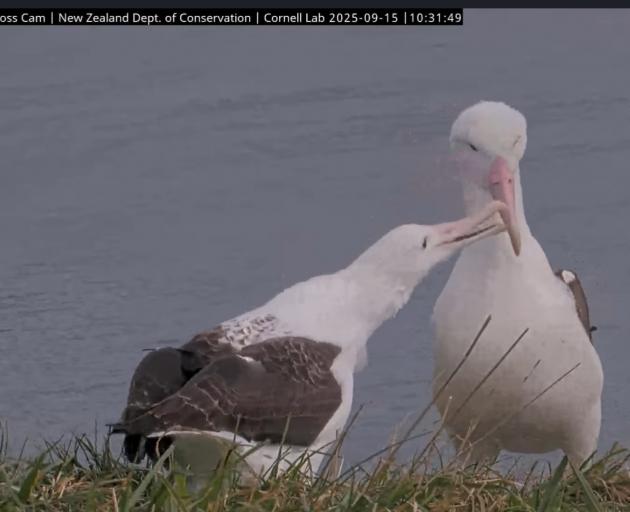
A total of 38 chicks fledged from the colony, the highest since recordings began.
This included 18 which were fitted with trackers showing their location using the Global Positioning System – with some already most of the way across the Pacific heading towards South America.
Department of Conservation’s Coastal Otago albatross ranger Sharyn Broni said this is the most chicks on record to fledge from the colony in a season, eclipsing the previous record of 33 from the last two seasons.
“The chicks have also needed less supplementary feeding than in past years, which suggests there was plenty of food available for the parents. We even found a 2kg eel next to one nest, which a parent had brought back.
‘‘There were several chicks, however, which lost one or both parents and required a lot of support from the rangers to ensure they were a healthy weight prior to fledging.’’
One chick took off successfully, she said, but was found dead at a local beach several days later.
‘‘We don't know what the cause was. It’s sad, but it’s natural that not all the chicks will be successful once they leave the colony.”
The colony has grown from one breeding pair in 1937 to more than 80 pairs in 2025.
Hoani Langsbury, Ecotourism Manager for the Otago Peninsula Trust responsible for the Royal Albatross Centre, said he could not have been prouder of the respective teams that worked together at Pukekura to enable this increase in fledging success.
Ms Broni said it was fitting to have had such a great season as the round-the-clock livestream Royal Cam, which watches one chick grow from an egg until fledging, celebrated its 10th season.
“Kaewa, as this year’s Royal Cam chick was named, left the colony on 17 September and is living up to her name, which means to travel or roam. Her tracker shows she has flown more than 2800km across the Pacific Ocean.”
Ms Broni said while it was great toroa were doing so well on the mainland thanks to help, it was not such good news for the wider population.
“About 99% of the toroa population breeds on small islands in the Chatham Islands and this is a species that faces a range of threats in the wild.
“One way you can help toroa when you're out naturing is by picking up rubbish, because toroa will mistake plastic in the ocean for food, which can be fatal for the adult or the chick, if rubbish is regurgitated to them.”
Anyone who wants to learn more about the species can tune into the round-the-clock livestream Royal Cam, which follows one toroa pair as they raise a chick from egg to fledging. The livestream is a collaboration between DOC and the Cornell Lab of Ornithology.
—Allied Media











